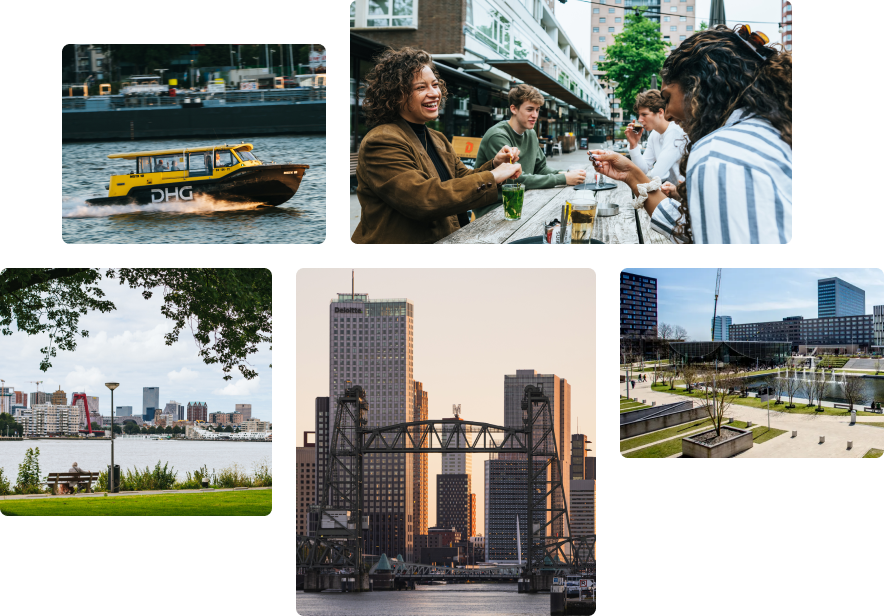Is this the programme you're looking for?
Calling future urban thinkers who are curious and interested in how we can revitalise post-industrial cities! This Erasmus Mundus Master in Science was developed by 8 world-class universities within the scope of UNIC, the European University of Cities in Post-Industrial Transition, and aims to educate the next generation of urban studies specialists with the 21st century skills and knowledge needed to address the challenges and opportunities of superdiverse societies and cities in transition.
Practical information
- Type
- Master
- Degree
- MSc
- Mode of study
- Full-time
- Instruction language
- English
- Duration
- 2 years
- Study points (EC)
- 120
- Location
- Campus Woudestein
- Start date
- September
- Application Deadline (EEA)
- 1 March
The study programme in a nutshell
The RePIC programme provides high quality academic education and professional competencies for excellent students, who are eager to specialise in subdisciplines of Urban Studies in a wider sense and who intend to build bridges into neighbouring disciplines, e.g., Law, Civil Engineering, Business, Sociology, Data Science, or Psychology.
This exciting and unique new Erasmus Mundus funded Master’s programme creates an educational experience which recognizes and responds critically to issues of cities in different forms and stages of post-industrial transition and educate the next generation of specialists with the 21st century skills and knowledge needed to address the challenges and opportunities of cities in transition and superdiverse societies.
Watch the study programme video

What you will learn
RePIC’s vision is to develop a new network of urban thinkers with the capacity to contribute to future-oriented, avant-garde thinking on the revitalisation of the post-industrial city.
RePIC graduates possess advanced research, professional, digital design, and spatial analysis skills, can mediate between the spheres of experts and laypersons, academia, and citizens, equipped with broad knowledge in the various sub-disciplines of the field.
After graduation you will have broad knowledge of:
- urban transformations and urban design in a global perspective; and are able to apply this knowledge in practice, and across different jurisdictions,
- the interdependent human and environmental urban systems,
- sociological and cultural approaches towards urban dynamics and actors, understanding major local and global historical developments influencing urban settings,
- dynamics and processes involved in the revitalisation of post industrial cities from the social science, sustainability, and circular economy perspectives.

